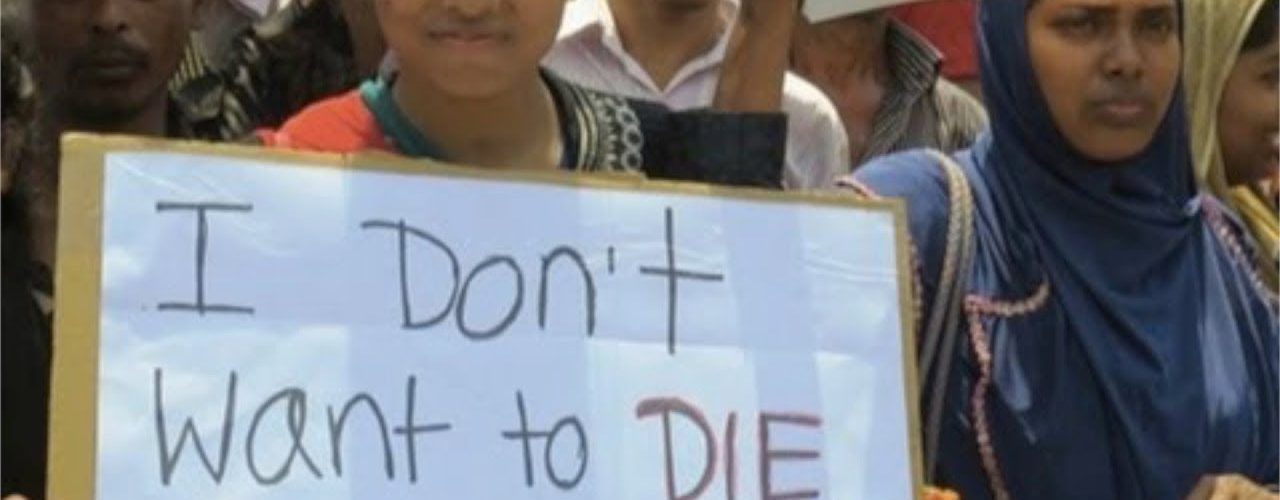One of the big gaps of international law is precisely the issue of clarity in jurisdiction. When there are problems with a violation of human rights and a lack of compliance, the issue is where to sue the company says Ambassador Espinosa, Chair- Rapporteur of the Open-ended intergovernmental working group on transnational corporations and other business enterprises with respect to human rights under mandate by the UN Human Rights Council resolution 26/9 to fix the problem.
January 3, 2017 Produced by Lynn Fries
TRANSCRIPT
LYNN FRIES: Welcome to The Real News Network. I’m Lynn Fries in Geneva.
In this report we look into a Human Right’s Resolution as a 21st century initiative to redress an imbalance between the rights and responsibilities of transnational corporations at the international level. This to prevent human rights abuses in a world system dominated by transnational corporations with parent companies largely headquartered in the Global North and subsidiaries and global supply chains across the Global South — and to provide appropriate justice and remedies for victims of corporate abuse.
On the 26th of June, 2014 the UN Human Rights Council adopted Resolution 26/9, giving an Intergovernmental Working Group a mandate to elaborate an international legally binding framework of human rights law with respect to the activities of transnational corporations. The purpose being: to match the scale and cross-border nature of transnational corporate systems of global production with effective legal enforcement of internationally-recognized standards of fundamental human rights.
This is part two of our report on UN Human Rights Council Resolution 26/9, with the Chair of its Working Group, Ecuador’s Permanent Representative to the United Nations Geneva, Ambassador Maria Fernanda Espinosa. The Ambassador previously served as Ecuador’s Minister of Defense and prior to that as Minister of Natural and Cultural Heritage and Minister for Foreign Affairs. Ambassador Espinosa, welcome.
AMB. ESPINOSA: Thank you. I’m delighted to be here.
LYNN FRIES: Comment more broadly on this struggle for coherence in International Law with respect to the obligations of transnational corporations. A coherence that architects of free-trade agreements and investment treaties already clarified for corporate rights and that we see relentlessly pushed further in new free-trade deals, the next generation of deals.
AMB. ESPINOSA: Well, I think that this explosion on free-trade agreements – multi-partite, multi-regional trade agreements, they really basically cry for some clarity in international law on these very sensitive issues. No matter where you invest, no matter how the supply chain operates in a trans-border, trans-regional way, you need some kind of thread, some kind of coherence in international law to make sure that there are not abuses. Not only with regard to labor rights, but also to environmental standards, issues such as climate change and the new climate change collective responsibility that we all have. I mean all these very issues are at stake. All the issues of migratory workers, human mobility, all these issues have to be addressed and need an international response. So, I think that the treaty process is extremely… is very timely
What we’re trying to bring is some justice, some balance, some harmony between the rights of investors, the rights of States, and the rights of potential victims.
LYNN FRIES: Comment on what happens under the current framework.
AMB. ESPINOSA: Well, basically what happens is that, for example, through the bilateral investment treaties, corporations have all the rights. They even have the right to sue governments if something goes wrong, if they fail to comply with a certain norm, or a certain commitment within a contract. They can bring to court… to arbitration courts, Member States, but States have strong difficulties to ensure liability and compliance from transnational corporations. So, there is an imbalance between rights and responsibilities at the international level.
LYNN FRIES: And the issue of jurisdiction.
AMB. ESPINOSA: The globalization process basically the outcome of that is that 80% of the goods and services that we consume around the world are produced by these de-localized fragmented production chains. I mean the commodity chains happen in different parts of the world. One of the big gaps of international law is precisely the issue of clarity in jurisdiction. When problems come and there is a big violation of human rights – there is a lack of compliance for example with environmental standards – the issue of where to sue the company or where to bring the company liable, it’s very complicated. And this has proved to be… I mean, the current framework we have in hand it has proven to be extremely inefficient.
So, we need clarity in issues of jurisdiction. We need clarity in terms of the procedure and the mechanisms for remedy, for accountability and to bring justice to the victims themselves. It all depends on the power of the negotiating parties. For example, with the disaster of British Petroleum in the Gulf of Mexico there were billions of dollars that were paid because of the pollution that happened in this tragic situation, of course. But I don’t know what is more tragic of what happened in the Gulf of Mexico, or what happened with the thousands of lives that we lost in Rana Plaza. In the case of Rana Plaza, the companies that were responsible, I think that they paid $600 to each one of the families that lost their loved ones, their relatives in that tragedy.
So, it means that there is a lack of a clear, normative framework with regard to accountability, to remedy, and to…in reparation to the victims. So, these are the big gaps that this International Treaty has to address. I think that we all have a responsibility as human beings, as societies to really make sure that these issues are addressed. This is the big difference between having corporate social responsibility frameworks that are voluntary, soft laws, national action plans, they’re all good, I mean we’re not saying that they’re not useful. They are useful, they’re a very important step forward, but there is a need — an urgent need to legalize the obligations of transnational corporations at the international level.
LYNN FRIES: And as we wrap up, a concluding thought?
AMB. ESPINOSA: Well, I think that it’s an open invitation not only to Member States, to the 193 Member States of the UN, but of citizens around the world to get involved in this process. We had already two sessions of the Working Group. We will hold a third session next year. But what is more important is the intensity of dialogue, consultations, awareness-building in the intersessional period. We don’t need to wait yet another year to get involved or to participate.
The sessions of the Working Group are webcasted, they’re public and basically what we need is the engagement, the participation of humankind of organizing society around the world, of social movements, of workers’ unions, of women’s movements that are welcome to take part in this process. Even if you cannot be in person, or attend the meetings, but there is a website of the Working Group and we receive contributions, comments, proposals.
We want this to be a process that is owned by citizens around the world and whatever happens and we expect that we will soon have a new Treaty, an International Human Rights Treaty — it’s going to be the outcome of the goodwill, of the engagement of the responsibility of human societies around the world.
LYNN FRIES: We have to leave it there. This concludes our report on UN Human Rights Council Resolution 26/9 with Ecuador’s Permanent Representative to the United Nations Geneva, Ambassador Maria Fernanda Espinosa. Ambassador Espinosa, thank you.
AMB. ESPINOSA: Thank you for this excellent conversation, for this opportunity to share with the public, with your audience, this process to build a new international treaty on transnational corporations and other business enterprises with regard to human rights.
LYNN FRIES: And thank you for joining us on The Real News Network.
END TRANSCRIPT
Ambassador Maria Fernanda Espinosa is the Permanent Representative of the Republic of Ecuador to the United Nations and other international organizations in Geneva since 26 January 2015. On 6 July 2015, at its first meeting, the Open-ended intergovernmental working group on transnational corporations and other business enterprises with respect to human rights, with the mandate of elaborating an international legally binding instrument, elected Ambassador Espinosa as its Chair-Rapporteur. Some of her prior posts include service as Minister of National Defense of Ecuador & Minister of Natural and Cultural Heritage and Minister for Foreign Affairs.
Originally published at TRNN



